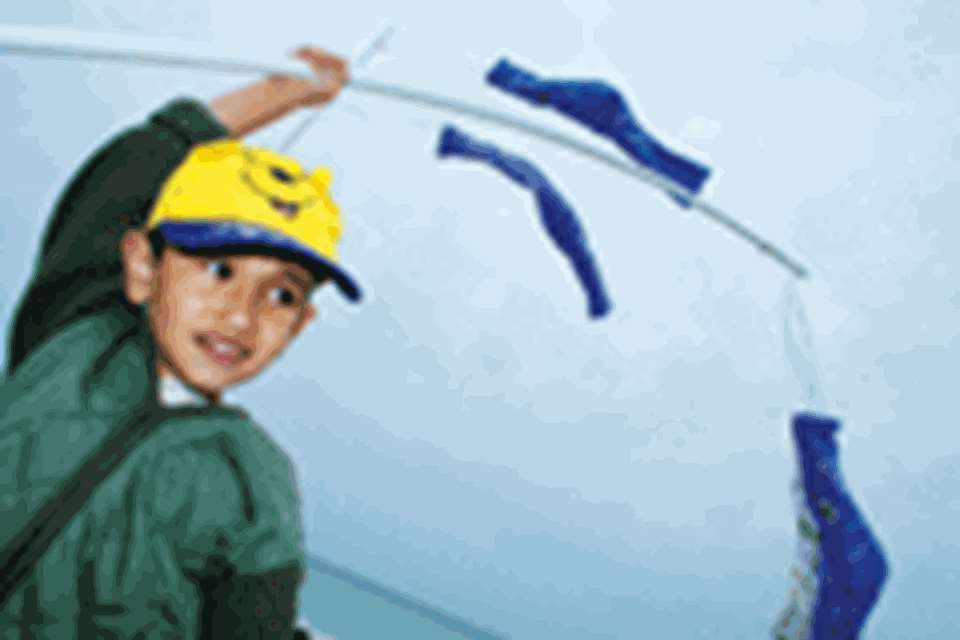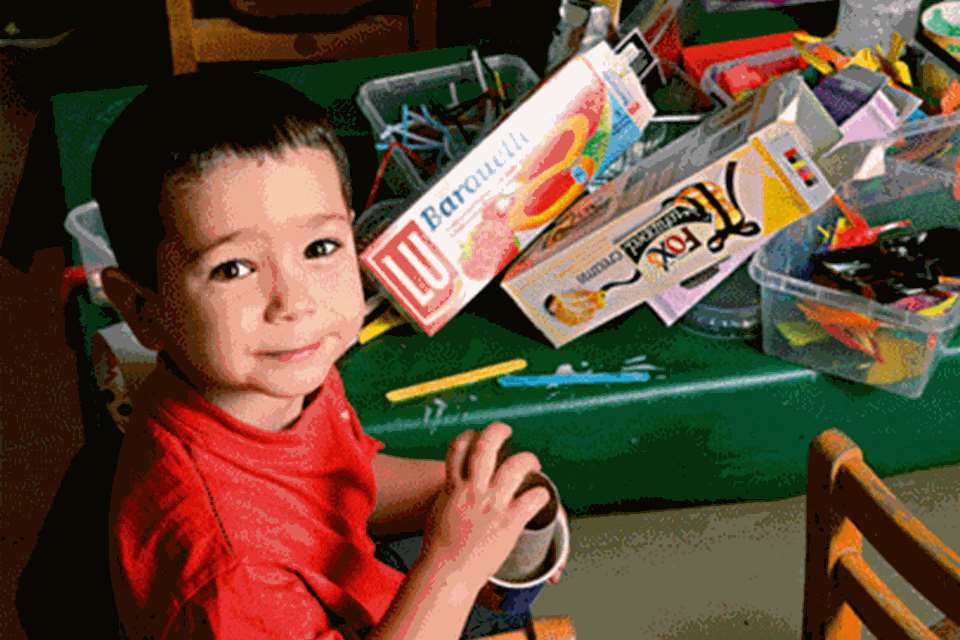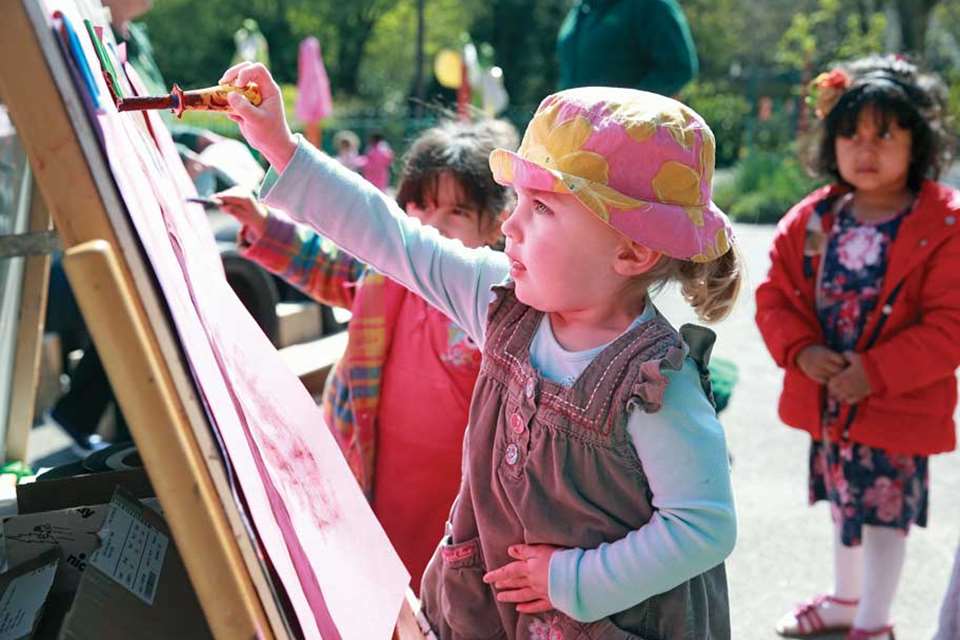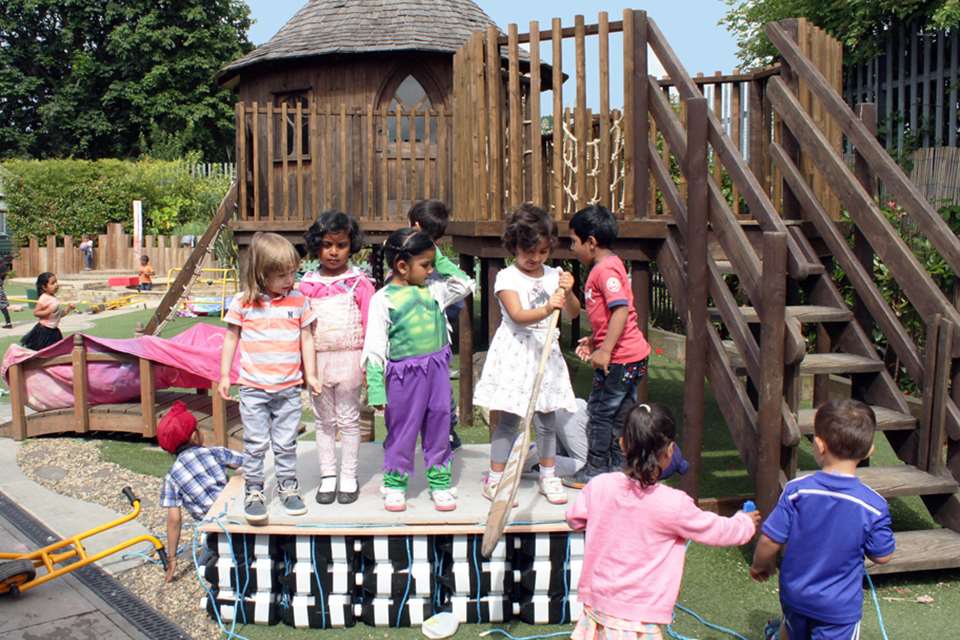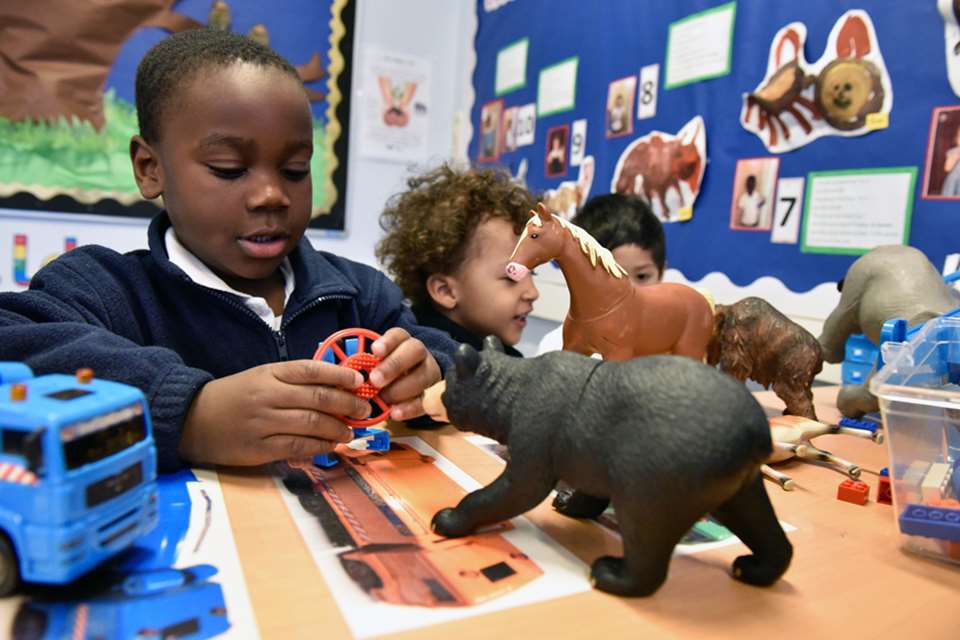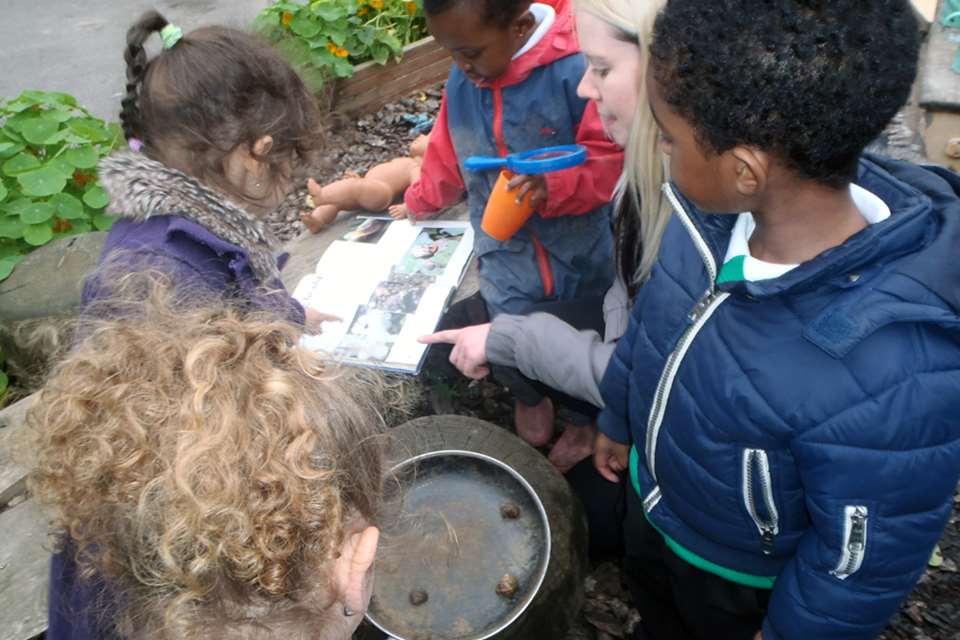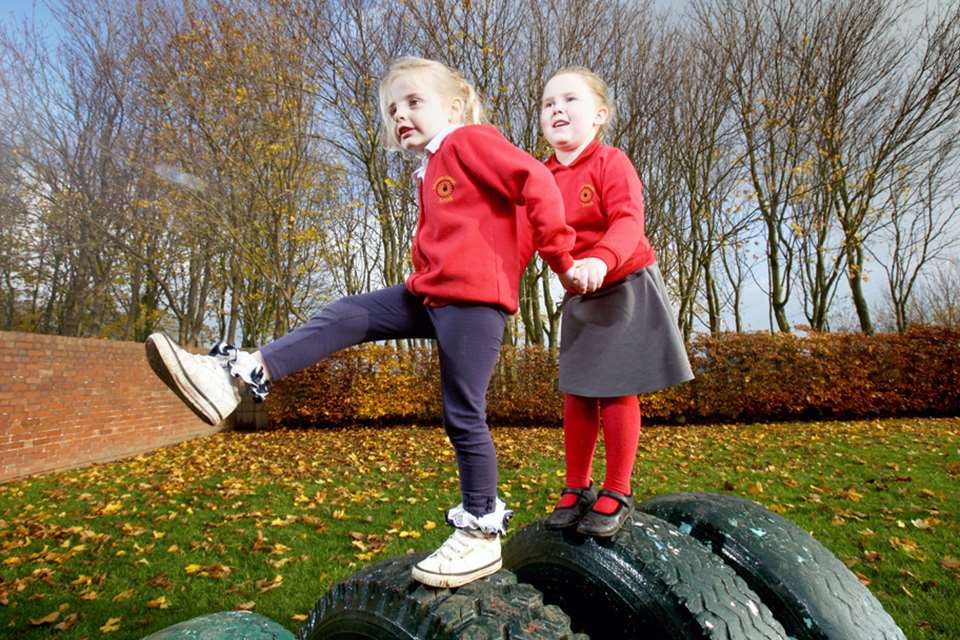Early Years in School: Creativity - ‘I want to be a worm’
Stephen Glen-Lee
Monday, January 25, 2016
What can we learn from a remote island school – and four-year-old Angus? Lots, explains head teacher Stephen Glen-Lee

Luing Primary School is based on the Atlantic island of Luing, off the west coast of Scotland. Formerly a traditional island school with desks and named places for each child, the children entered this world of education at Primary 1 (aged five) and stayed until the end of Primary 7.
When I became head teacher in 2008, I used the summer break to create the blank canvas that I wanted. Skips were sourced and out went the past – the tables, the chairs and the named trays – and in came Community Playthings unit and hollow blocks, as well as lots of paint, clay and material. I spent my summer in anticipation of the teachers’ faces at the start of term.
I’ll never forget the horror that greeted me on that first day. I was as welcome as the plague, and my wings were soon clipped by the staff’s lack of enthusiasm and mutinous whispers about my new approach.
Most significantly, my transformation included setting up a nursery, making the school the first three-to-12 setting in Argyll. The nursery, with five three- and four-year-olds, was the key to transforming everyone’s experiences at the school – both staff and children’s.
I was seated at my office computer when Angus, then just three, came for his first visit. His mum said, ‘This is the headmaster!’ He climbed up on to my swivel chair beside me and said, ‘What are we going to do now, then?’
His awe and wonder of the world around him, his inability to recognise the impossible, brought me back from the brink of despair. Here I had a child that had not experienced the treadmill of education and believed he was on the threshold of an amazing adventure. Can we as managers allow the awe and wonder of children to railroad the preconceived ideas and expectations of staff? What is more important: creativity or the grasp of a pencil?
Curriculum for Excellence arrived in Scottish settings in time to safeguard and value the learning and creative potential of children. In this open-ended framework, the Scottish government refused to be prescriptive, so freeing us from a ticksheet culture in curriculum planning and assessment. We are expected to give children the opportunity to develop their inner genius and we are not allowed to stand in the way.
We had to revisit child development, attachment, divergent thinking, aesthetic experiences and individuality. Every experience we created was monitored and justified against the seven principles of Personalisation and Choice, Relevance, Coherence, Challenge and Enjoyment, Breadth, Depth, and Progression. The days of ‘doing the Vikings’ from a topic box were over.
WRIGGLE ROOM
As I wandered round the school site one Monday morning with my quality improvement officer (QIO), Angus came over and tugged at my trouser leg. He had an idea hatching, a vision of where he wanted to be, and he couldn’t wait for this suited stranger to leave before implementing it.
I knelt to his eye level and he stated, ‘I want to be a worm.’ In my head, I did an instant stocktake of brown paint and crepe paper and calmly asked, under the gaze of the QIO, ‘What do you need, Angus?’ I was deflated when he asked for a digger, having just walked my boss through a display of spades and shovels, showing how I had developed the children’s independence – and here was a child seemingly unable to access the simplest of resources.
My disappointment must have shown as Angus read the signal and said, ‘Can I go and get a digger myself?’ We watched him walk into the school, kick off his welly boots and march up to 12-year-old Jamie, who was in the middle of a teacher-directed maths lesson. ‘Mr Glen-Lee said you have to dig me a hole,’ he announced.
A couple of hours later, I could hear the excitement rising and an exhausted Jamie appeared at my door. I followed him to find Angus standing in a hole up to his chest, wriggling. This wasn’t for comedy value. Angus was fully alive. He needed to know what it was to be a worm. He had no interest in the archeological significance of where he was excavating.
Angus’s wormhole was popular but not for sharing. When I returned to school on the Wednesday, every nursery child had a wormhole and Angus was leading the learning. The curriculum for the whole school had been transformed. Three- to 12-year-olds were working as teams with one four-year-old in a hard hat co-ordinating.
The children were co-operating; they were studying insects, they were looking at artefacts and researching what was on the site previously; they were measuring the volume of soil, the types of soil – they had a geologist identifying rocks. It was a curriculum like no other. I still had hopes of crepe paper and googly eyes on cardboard spirals, but it didn’t happen.
It rained. I came into school to find six very deep ponds and Angus assessing the damage. I also had a cleaner too frightened to leave the building after dark in case she fell into a hole.
Angus very quickly took action and had all the holes filled in (except his own, which posed additional learning opportunities). He worked tirelessly gathering stones to build a risk-assessed wall. He took the cleaner and taught her the right foot shuffle so she could keep safe, and then he tackled the water.
Angus got his dad to deliver guttering to the school and he lined it up to channel the muddy water away from the wormhole. He then enlisted the help of a volunteer to start decanting the water from the hole. He fully expected the water to travel up the guttering and couldn’t have been more shocked when it careered down and into the classroom. Angus was oblivious to the older children crying with loving laughter as the nursery children repeatedly tried to get the slurry to defy gravity. Angus eventually asked, ‘Why?’
IMPOSSIBLE THOUGHT
Having evaluated the value of the people in his learning community, Angus didn’t ask a teacher but went to the older children instead. They introduced him to gravity through simple and accessible explanations and instinctively set up formative assessment opportunities to monitor and track the learning.
Angus did question why I had sourced googly eyes and was puzzled that I would think worms had eyes like that. ‘Anyway, we’re done learning worms. We’ve moved on to gravity,’ he added, as if giving me permission to play with my craft materials as long as I didn’t get in the way.
What is the role of the early years practitioner? Is it to rein in children? Is it to limit the expansion of impossible thought? Is it to get children to conform, sit in a group, to make things rhyme, to write their name?
Angus had no interest in writing his name. In fact, he struggled to understand why we were indoors most of the time. He was very clear that he was a farmer, scientist, singer, fairy, dancer, meteorologist, politician and worm, and that everything he needed to learn was outside.
NATURAL TEACHERS
As professionals, we realised that our biggest resource was the older children. They were natural teachers and were skilled in simplifying complex concepts and allowing the three- and four-year-olds to own them. They were consolidating their own learning, contextualising division and equations, while working in a beautiful, empathising way. Are our nursery children missing out when in single-age groups with an adult leader?
By the age of ten, Angus and his pals had convinced me that homework did not fit with my principles and therefore should be banned; convinced the Church of Scotland minister of the irrelevance of church at Christmas and moved the nativity to a cowshed; successfully fought to keep their school open by writing to the Prime Minister and posing for the national press; and called the United Nations and asked who to speak to for World Peace. There was no concept of the impossible.
Angus’s family left the island when he was ten. He attended a large primary school with his name on the desk. Before the end of his first term, a psychologist was assessing him for his behaviour. His parents wanted an explanation as to why I hadn’t picked up on Angus’s problems. Had we done Angus an injustice? I didn’t ever see a problem. I saw a genius.
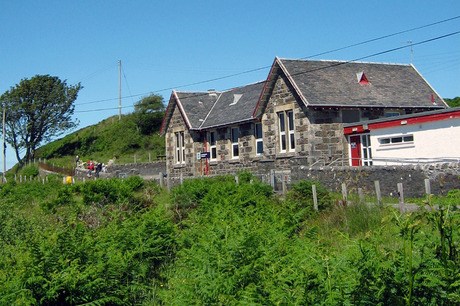
MORE INFORMATION
www.educationscotland.gov.uk/learningandteaching/thecurriculum/whatiscurriculumforexcellence


